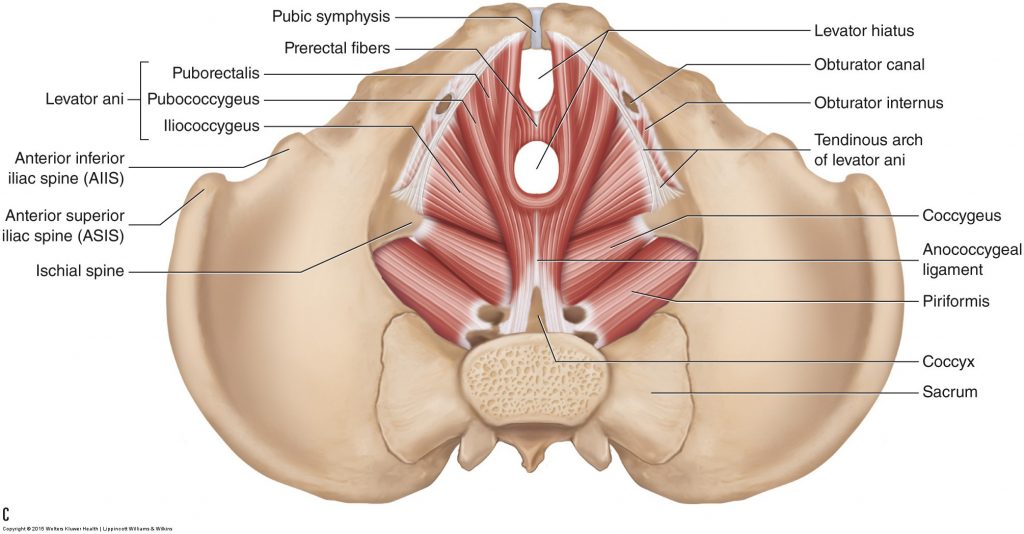The human body is a marvel of intricate design, with each muscle and organ contributing to its functionality and well-being.
Among these essential components, the pelvic floor muscles stand out as particularly crucial for women.
Often overlooked and underestimated, these muscles play a vital role in women’s health, impacting various aspects of their physical and emotional well-being throughout different stages of life.
Understanding the Pelvic Floor Muscles:
The pelvic floor muscles are a group of muscles that form a supportive hammock-like structure at the base of the pelvis.
Comprising layers of muscle fibers and connective tissue, the pelvic floor provides support to the bladder, uterus, and rectum.
These muscles are responsible for controlling the passage of urine, feces, and, in women, menstrual flow.

Importance for Women:
For women, the pelvic floor muscles serve numerous essential functions, making them integral to overall health, quality of life including pregnancy health:
- Support During Pregnancy and Childbirth: Throughout pregnancy, the pelvic floor muscles provide crucial support to the increasing weight of the uterus and growing fetus. Strengthening these muscles through exercises such as Kegels can help prepare the body for labor and reduce the risk of complications such as urinary incontinence and pelvic organ prolapse postpartum.
- Postpartum Recovery: The strain of childbirth can weaken the pelvic floor muscles, leading to issues like urinary incontinence and pelvic organ prolapse. Pelvic floor rehabilitation and targeted exercises can aid in the recovery process, restoring strength and function to these essential muscles.
- Prevention of Urinary Incontinence: Weak pelvic floor muscles can contribute to urinary incontinence, a common issue among women, especially as they age or after childbirth. Strengthening exercises help improve muscle tone and control, reducing the likelihood of involuntary urine leakage.
- Enhanced Sexual Health: Strong pelvic floor muscles can enhance sexual function and pleasure by improving vaginal tone and sensitivity. Women who actively engage and strengthen these muscles often report greater satisfaction and comfort during intercourse.
- Support for Pelvic Organ Health: The pelvic floor muscles provide crucial support to pelvic organs such as the bladder, uterus, and rectum. Maintaining strength and tone in these muscles is essential for preventing pelvic organ prolapse, a condition where one or more organs descend into the vaginal canal due to weakened support structures.
- Improved Core Stability: Strong pelvic floor muscles are integral to core stability, contributing to proper posture, balance, and overall strength. A robust core not only enhances physical performance but also reduces the risk of injury and supports spinal health.
Pelvic Floor Muscle Exercises:
Pelvic floor exercises, commonly known as Kegels, are simple yet effective techniques for strengthening these vital muscles. To perform Kegels:
- Identify the pelvic floor muscles by stopping the flow of urine midstream or by tightening the muscles that would prevent passing gas.
- Contract these muscles, holding the contraction for a few seconds before releasing.
- Repeat the contractions in sets of 10, aiming for at least three sets per day.
Consistency and proper technique are key to achieving optimal results from pelvic floor exercises.
Conclusion:
The pelvic floor muscles represent an indispensable aspect of women’s health and well-being, impacting various facets of their lives from pregnancy and childbirth to sexual function and overall quality of life.
By unlocking the strength within, women empower themselves to lead active, comfortable, and confident lives at every stage of their journey.
Embracing the significance of pelvic floor health is not just about physical strength—it is about recognizing and honoring the resilience and vitality that define womanhood.
As women prioritize their pelvic floor health, they embody a spirit of self-care, empowerment, and resilience that empowers them to thrive in every aspect of their lives.
